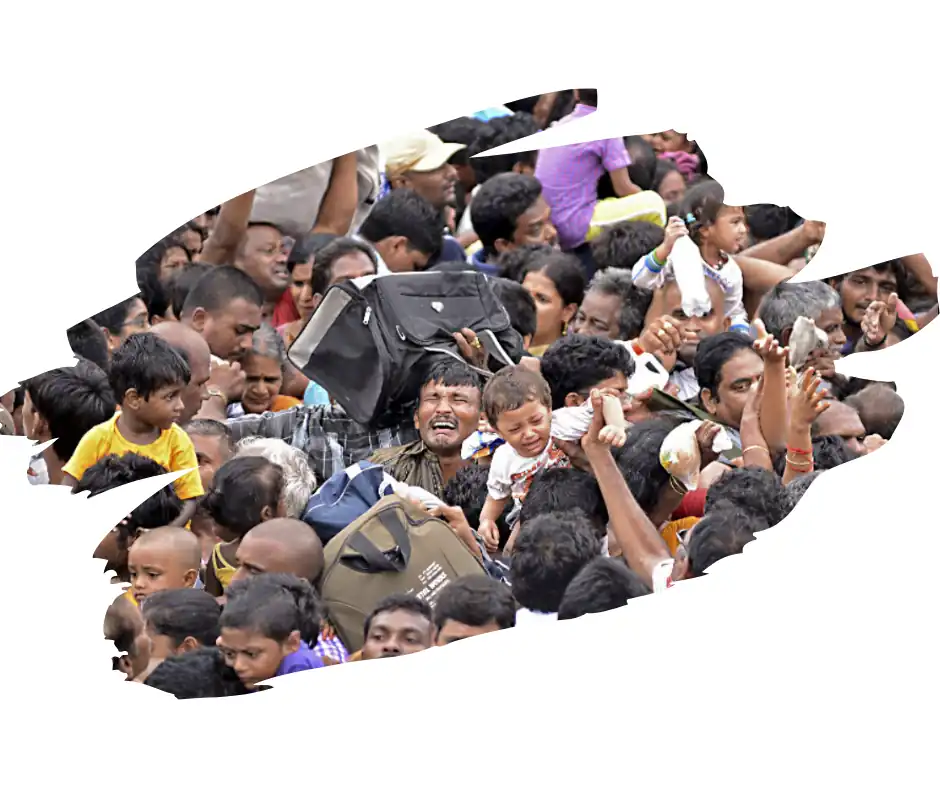Bharat Bandh 2024
The Reservation Bachao Sangharsh Samiti organized the Bharat Bandh, a historic event that took place in India on August 21, 2024. This countrywide walkout was in response to the Supreme Court’s decision on reservations for SC/ST communities.
The decision permits governments to divide the Scheduled Castes (SC) and Scheduled Tribes (ST) into smaller subgroups, intending to prioritize those who require reservations more urgently.
However, this ruling has triggered heated debates across the country, particularly around caste prejudice and its consequences for students.
What is Reservation Bachao Sangharsh Samiti?
Role of Reservation Bachao Sangharsh Samiti in Bharat Bandh 2024
The Reservation Bachao Sangharsh Samiti is an organization in India that actively advocates for the protection and preservation of the reservation system, which is designed to provide affirmative action for historically marginalized communities, specifically the Scheduled Castes (SC) and Scheduled Tribes (ST).
The Samiti opposes any measures or policies that it perceives as a threat to the integrity and effectiveness of the reservation system. They have been involved in various movements and protests to ensure that the rights and representation of SC/ST communities are maintained and not diluted through legal or administrative changes.
Reasons of Bharat Bandh 2024
The Supreme Court’s Decision
The Supreme Court’s ruling has stirred controversy, especially within SC/ST communities. Many believe this decision jeopardizes India’s reservation policy.
According to the ruling, “those who really need it should get priority in reservation.” This statement has raised fears of further marginalization within these underprivileged communities.
Critics argue that the ruling unnecessarily divides SC/ST populations. Some groups may find themselves at a disadvantage, even within systems intended to elevate them.
disadvantages of the Reservation System
Reservations, while aimed at strengthening underprivileged areas, often spark significant debate. Reverse discrimination is one of the primary critiques, with individuals outside the reserved categories feeling deprived of opportunities.
This concern is particularly prevalent in government jobs and educational institutions.
There is also concern that the reservation system might not benefit the most deserving individuals within SC/ST groups. The Supreme Court’s ruling permits subcategories in an effort to address this issue. However, critics have labeled this approach as overly complicated and potentially divisive.
Effects of Reservation on Students
The reservation system’s effect on students is one of its most divisive aspects. Reservations in educational institutions aim to provide opportunities to historically underprivileged individuals but also raise questions about meritocracy.
Critics contend that reservations may lead to seats being filled by students who do not meet the standard criteria, potentially lowering the overall quality of education.
Proponents argue that the reservation system is an essential tool for achieving social fairness. They believe it offers opportunities to those who might otherwise be excluded due to systemic discrimination. The Supreme Court’s decision to allow states to prioritize certain SC/ST communities adds further complexity to this debate.
Caste Discrimination in India
Caste discrimination remains pervasive in India despite legislative safeguards and affirmative action initiatives. The Bharat Bandh highlights the ongoing struggle of marginalized communities to achieve full equality in a society where caste continues to play a fundamental role.
The reservation system was designed to combat caste discrimination by providing opportunities to historically oppressed individuals. However, the Supreme Court’s decision has reopened discussions about whether the current system is the best means of achieving this goal.
Some view the decision as a step backward, potentially exacerbating existing divisions rather than promoting equality.
Caste Reservation – India Vs United Kingdom
Historical Context
India: The Indian reservation system was created after centuries of caste-based oppression. It aims to uplift Scheduled Castes (SC), Scheduled Tribes (ST), and Other Backward Classes (OBC) by granting reserved seats in government positions, educational institutions, and legislative bodies.
The system is deeply embedded in India’s Constitution, reflecting the nation’s dedication to redressing past wrongs committed against underprivileged groups.
UK: The UK has developed a framework of affirmative action and equality legislation to address racial and gender inequalities, though it does not have a reservation system like India’s.
The UK’s approach focuses on promoting equal opportunities rather than guaranteeing specific outcomes for minority groups. Laws like the Equality Act 2010 prohibit discrimination based on race, gender, disability, and other protected characteristics while promoting proactive measures to assist underrepresented communities.
Legal Framework in term of Reservation
The Indian reservation system is enshrined in the Constitution and supported by a complex legal framework. It is regularly reviewed by the courts, leading to significant rulings that shape its implementation.
Recent decisions, such as the one permitting SC/ST reservations to be divided into subcategories, have sparked intense debates and major protests like the Bharat Bandh.
In the UK, the Equality Act 2010 serves as the cornerstone of the country’s affirmative action legal framework. This law prohibits discrimination and encourages positive action to advance equality.
However, it does not impose quotas, and positive discrimination, favoring one group over another based solely on characteristics like race or gender, is generally forbidden.
Details in the Articles are collected from trusted Sources you can visit Mint for more details.
Wanna Explore More Articles?

Olympics 2024
The Paris 2024 Olympics, from July 26 to August 11, will showcase new sports, promote sustainability, and feature iconic venues.
Baba Siddhnath Temple Stampede
Stampede at Baba Siddhnath Temple, Bihar, kills 7 and injures 9 during Sawan rituals, raising safety concerns.

Not Satisfied with these?
Visit the Category Page and Select the category you want.
The Page “Reading Zone” is the property of Paraworld.in, any activity against our Privacy Policy will be punishable.
